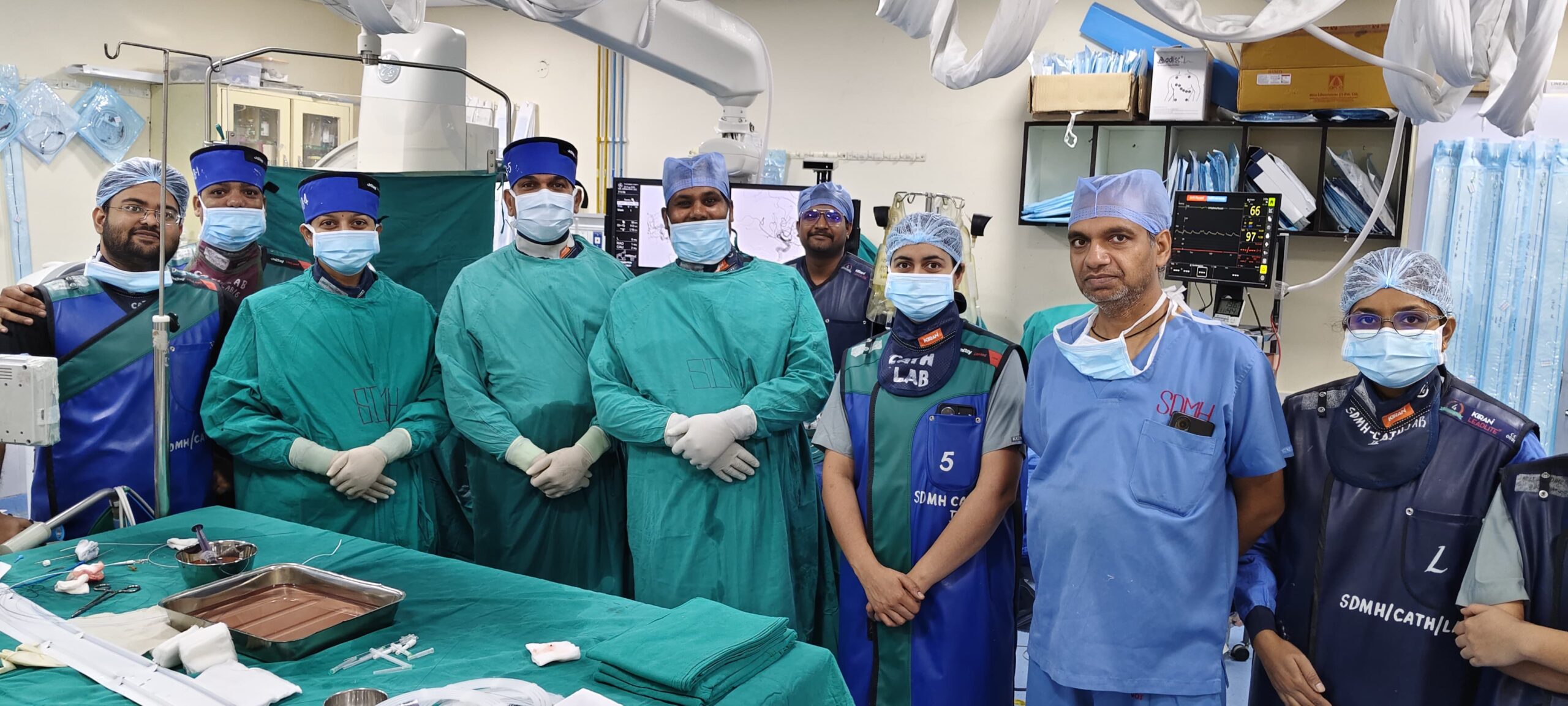Subtotal ₹0.00
Shopping cart
- drsharmadp@gmail.com
- B-434, Pradhan Marg, Vidyut Abhiyanta Colony, Malviya Nagar, Jaipur (Raj.)
Spinal Intervention is a specialized branch of neurosurgery focusing on minimally invasive, image-guided procedures for treating vascular and structural problems of the spine and spinal cord. Dr. D.P. Sharma (MBBS, MS, M.Ch Neurosurgery, Fellow Endovascular Surgery) provides advanced care for patients in Jaipur, ensuring safe and effective treatment with faster recovery.
Definition: SDAVF is an abnormal connection between an artery and a vein in the dura mater (the protective covering of the spinal cord). It is the most common type of spinal vascular malformation and can compress the spinal cord if left untreated.
Symptoms:
Why it’s done: Treatment is essential to prevent progressive spinal cord damage, paralysis, and permanent neurological deficits.
Process: Endovascular embolization or microsurgical disconnection is performed. A micro-catheter is guided to the fistula under imaging guidance, and embolic agents like glue, coils, or Onyx are used to block abnormal vessels.
Recovery: Most patients recover function gradually over weeks to months. Hospital stay is typically 2–5 days depending on procedure complexity.
When to consult doctor:Immediate consultation is needed if patients experience progressive leg weakness, numbness, or loss of bladder/bowel control.
Definition: A perimedullary fistula is a high-flow arteriovenous fistula located on the surface of the spinal cord, leading to abnormal blood flow and spinal cord compression.
Symptoms:
Why it’s done: Early treatment prevents progressive spinal cord injury, paralysis, and irreversible neurological damage.
Process: Using endovascular or surgical techniques, abnormal vessels are selectively embolized using balloons, coils, glue, or Onyx. Image guidance ensures precise treatment with minimal risk.
Recovery: Hospital stay ranges from 2–5 days. Gradual neurological improvement is usually seen over several weeks.
When to consult doctor:Consult a neurosurgeon if leg weakness, numbness, or sensory deficits develop or worsen.
Definition:
Spinal AVM is an abnormal tangle of arteries and veins within or on the surface of the spinal cord, disrupting normal blood flow.
Symptoms:
Why it’s done: Untreated spinal AVMs can lead to progressive paralysis, severe neurological deficits, or spinal cord bleeding.
Process: Endovascular embolization or microsurgical excision is performed. Micro-catheters are used to deliver embolic agents like glue, coils, or Onyx to close abnormal vessels while preserving normal spinal cord circulation.
Recovery: Recovery may take days to weeks depending on the severity and pre-existing neurological deficits. Regular follow-up imaging is required to ensure complete treatment.
When to consult doctor: Immediate medical attention is needed if patients notice new or worsening leg weakness, numbness, or bladder/bowel changes.
Dr. Sharma uses the latest minimally invasive, image-guided spinal intervention techniques including:

With extensive expertise in spinal and endovascular neurosurgery, Dr. Sharma ensures:
Expert care for brain, spine, and nerve conditions—your path to recovery starts here.
Most patients stay 2–5 days in hospital and show gradual neurological improvement over weeks.
Risks are minimal when performed by an expert like Dr. Sharma. Complications are rare, and imaging-guided techniques enhance safety.

WhatsApp us !